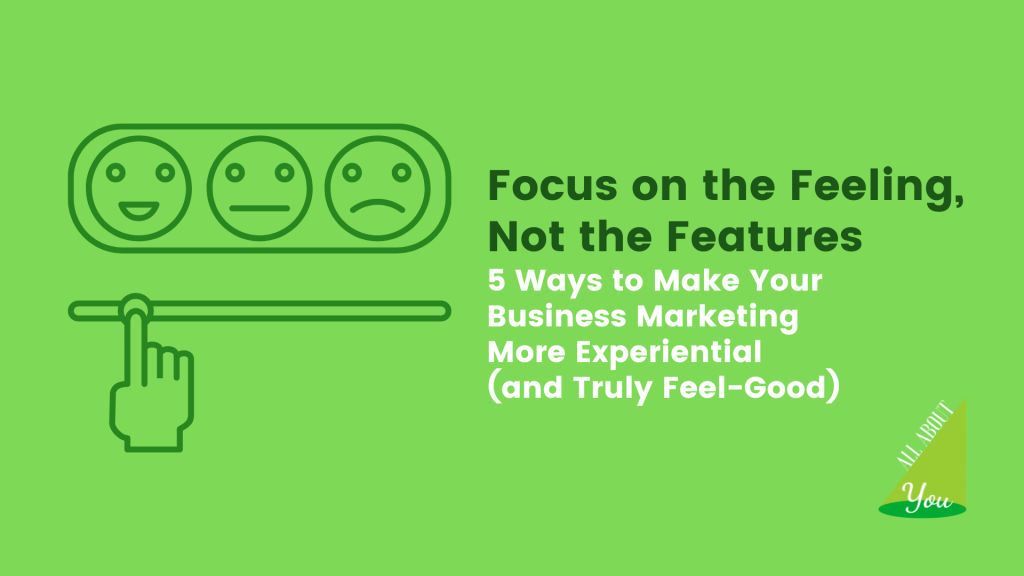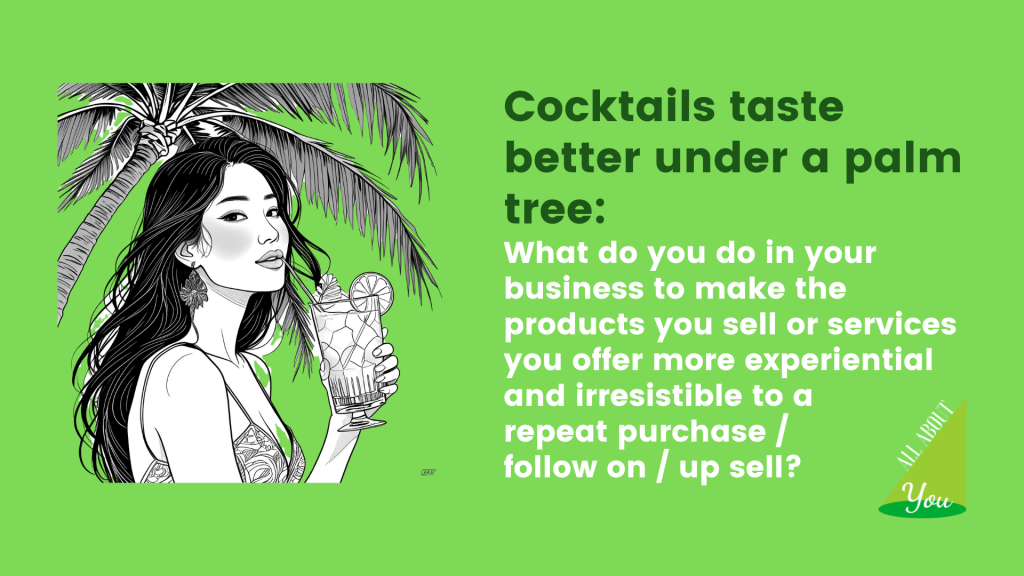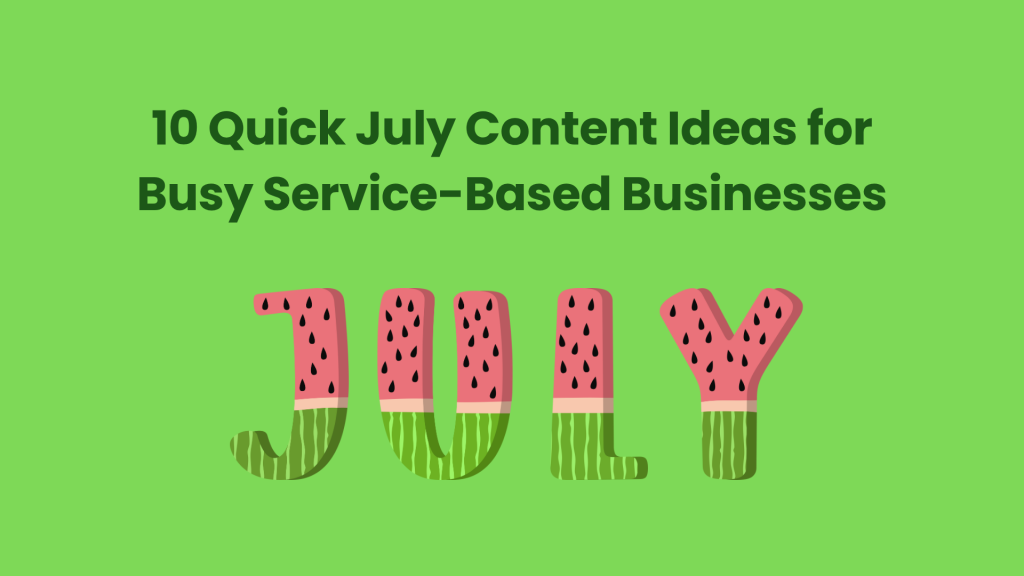
In today’s world, customers are craving more than just a transaction. They’re looking for meaningful, feel-good experiences: brands that connect, not just convince. Gone are the days of “sell, sell, sell.” What people want now is emotional resonance, thoughtful details, and a sense of being seen.
As the shift towards experiential marketing continues in 2025, it’s clear that businesses who want to stand out must craft more than a service or product. They need to create a vibe.
Here are five ways to do exactly that, with real-world ideas for both service-based and retail, hospitality or venue-based businesses.
1. Create a Cohesive, Sensory Brand Experience
Whether it’s the lighting in your venue, the language on your website, or the scent in your waiting room, every touchpoint should feel like you. The goal is consistency, where every channel and environment reflects the same brand tone and emotional feel.
“Today’s customer experience is built on alignment. Every interaction must feel like it’s part of one seamless story,” says a recent 2025 report by CX Today. “A disjointed experience erodes trust. Consistency builds it.”
Service Business Idea:
For a financial adviser or solicitor, ensure your client experience is reassuring from start to finish. If your website promises clear, jargon-free advice, make sure your office décor, printed documents, and follow-up emails all reflect that same calm, trustworthy tone. Think warm lighting, neutral colours, and friendly language in every form.
Retail, Hospitality or Venue-Based Idea:
If you run a café or boutique, align your online presence with your physical vibe. A quirky, vintage coffee shop might use hand-drawn illustrations and playful captions on Instagram. Meanwhile, a sleek, minimalist store could opt for calm tones, slow-paced video reels, and elegant copy to mirror the in-store mood.
2. Invite Customers Into the Story
People love being part of something. Don’t just talk at them; bring them into the experience. Show them how your business works, celebrate their stories, and invite interaction.
As noted by Marketing Week (April 2024), “The most powerful marketing campaigns of today are rooted in real, human experience. Making the customer part of the journey, not just a recipient of it.”
Service Business Idea:
If you’re a driving instructor, private tutor or legal consultant, highlight client success stories (with permission, of course). Share photos of clients who’ve just passed their test or completed a milestone legal process. You could even run a “Client Spotlight” series to show the real people behind your service.
Retail, Hospitality or Venue-Based Idea:
If you own a shop, salon or event space, run behind-the-scenes social media content or “Meet the Maker” evenings. Invite customers to join you for seasonal workshops, wine tastings, or product launches where they can interact directly with your brand in a relaxed, meaningful way.
3. Design With Experience in Mind, Not Just Aesthetics
Great design isn’t just about how things look. It’s about how they work. Smooth, user-friendly experiences create positive emotional associations. If something feels awkward or clunky, it breaks the spell.
The 2025 Adobe Experience Trends report notes, “The best brands of the year weren’t the flashiest. They were the smoothest, most human-centred experiences.”
Service Business Idea:
A solicitor’s firm or accountancy practice could simplify their onboarding by using plain-English guides, intuitive digital forms, and friendly reminder emails. Replace cold, automated comms with warm, personal messages that reassure clients every step of the way.
Retail, Hospitality or Venue-Based Idea:
For hospitality venues or local shops, look at how easy (or not) it is to make a booking or place an order online. Is your site mobile-friendly? Are directions and opening hours clear? Little tweaks like a “what to expect” page or a warm thank-you message after checkout go a long way.
4. Align Your Marketing Tone with Your In-Person Vibe
One of the biggest pitfalls in experiential marketing is inconsistency. If your social media is fun and upbeat but your real-life service feels formal or indifferent, customers will feel let down. Consistency builds trust. Mismatches create confusion.
Fix it: Create a simple tone-of-voice guide for your business. Share it with your team and use it across signage, emails, social posts and verbal greetings.
Service Business Idea:
A mortgage adviser or consulting professional might use friendly, conversational language in online ads. But if their follow-up emails are overly formal, the tone feels off. Keep the warm, clear language flowing across all touchpoints, from first inquiry to follow-up call.
Retail, Hospitality or Venue-Based Idea:
If your restaurant or lifestyle store has a trendy, youthful vibe online, train your staff to reflect that same energy in-person with upbeat greetings, casual chat, and helpful recommendations. Customers should feel like they’ve stepped into your brand when they walk through the door.
5. Focus on the Feeling, Not the Features
People are drawn to how your business makes them feel, not just what it offers. Your messaging should evoke emotions: relief, excitement, comfort, confidence—whatever feeling aligns with your brand.
One of the key takeaways from HubSpot’s 2024 Consumer Behaviour Report was that “emotion-led messaging significantly increases brand recall and loyalty across sectors, from finance to food service.”
Service Business Idea:
Instead of “We help with probate and wills,” a solicitor might say, “Supporting you with clarity and care during life’s big moments.” Financial advisers could shift from “Get a pension review” to “Feel confident about your financial future.”
Retail, Hospitality or Venue-Based Idea:
If you own a homeware store, instead of “New autumn stock available,” try “Cosy finds to make your home your sanctuary.” A hotel might replace “Rooms from £99” with “Recharge, relax and wake up inspired.”
Final Thought
At the heart of experiential marketing is empathy. When businesses understand not just what customers need, but how they want to feel, they can turn everyday interactions into meaningful experiences.
Whether you’re a solicitor, barista, adviser or shop owner, ask yourself: Are we selling a product… or creating a moment?
Because in 2025, customers are choosing connection over hard sells, and experiences that feel good are what truly stand out.


